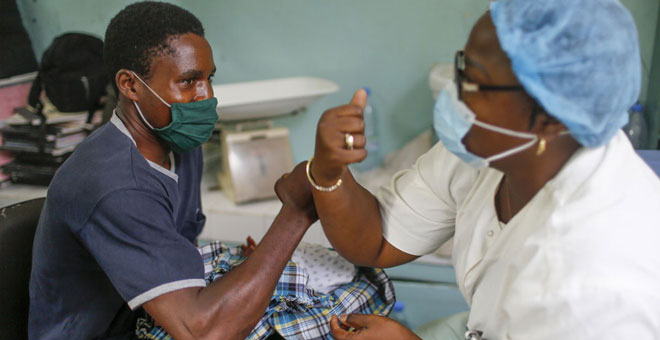
COMMENT | DR SETH BERKLEY | What a year this has been! The devastating impact of COVID-19 has affected us all, and few will look back on 2020 with fond memories.
With around 1.7 million deaths, more than 76 million confirmed cases and a global economic impact that the World Bank has predicted will trigger the worst recession since World War II – with global extreme poverty expected to rise for the first time in more than 20 years – this pandemic has left its mark on every single one of us.
However, despite the enormous scale of the challenges it has posed, I am extremely proud of the way in which the Alliance has responded, a response that now signals a new era in international cooperation, scientific collaboration, recognition of frontline workers and one which will ultimately play a critical role in bringing this crisis to an end.
For Gavi, the Vaccine Alliance – a public-private partnership bringing together implementing and financing countries, the World Health Organization (WHO), UNICEF, the World Bank, industry, civil society and others – this year began with an important anniversary marking 20 years of keeping people healthy since our launch at the World Economic Forum in January 2000. For us, this was an opportunity to celebrate our incredible achievements during that time, reducing vaccine-preventable diseases by 70%, contributing to a more than 50% reduction in under-five child mortality and now protecting nearly half the world’s children with life-saving vaccines. Yet, little did we know that just a few weeks later, the spread of the novel coronavirus would change the course of global health forever.
By April, the Alliance would find itself at the centre of the international response, coordinating COVAX with the Coalition for Epidemic Preparedness Innovations (CEPI) and WHO. Involving more than 190 economies, representing around 90% of the global population, COVAX is an unprecedented example of global solidarity. Born out of necessity, it is a global solution to a global pandemic, with the singular goal of ensuring rapid, fair and equitable access to COVID-19 vaccines for people all across the world, regardless of their ability to pay.
And so, just over 20 years after it was created in a small basement room of a UNICEF building in Geneva, in 2020 Gavi found itself giving birth to a new alliance, the COVAX Facility. We have built this ship as we sailed, but within a few short months it has already achieved so much – securing an initial 2 billion doses of COVID-19 vaccines that will begin rolling out in the coming months, with enough to reach frontline health and care workers the world over by mid-2021 and further at-risk populations beyond. This is vital because unless everyone is protected from COVID-19, we are all at risk.
Establishing, coordinating and administering this new effort hasn’t been without its challenges, especially in terms of additional workload and pressure on Gavi Secretariat and partner staff. We’ve had to find new ways of working together to maintain, restore and strengthen immunisation in the context of COVID-19, and to coordinate even closer with our Alliance partners across the world – from civil society, government, multilateral institutions and the private sector – in the absence of the frequent travel upon which most global health organisations are dependent.
At the same time, this pandemic has had a palpable impact on our core work of expanding access to new and underused vaccines. In 2020, out of 68 Gavi-supported vaccine introductions and campaigns projected, 45 have been delayed or are still at risk of delay due to COVID-19 disruptions. In May, analysis by Gavi, along with WHO and UNICEF, revealed that disruptions to routine immunisation services had put 80 million children under age one at risk of contracting vaccine-preventable diseases. Gavi’s preliminary, unofficial data indicates about a 15% decline in children vaccinated in the first half of the year compared with the same period in 2019.
 The Independent Uganda: You get the Truth we Pay the Price
The Independent Uganda: You get the Truth we Pay the Price



